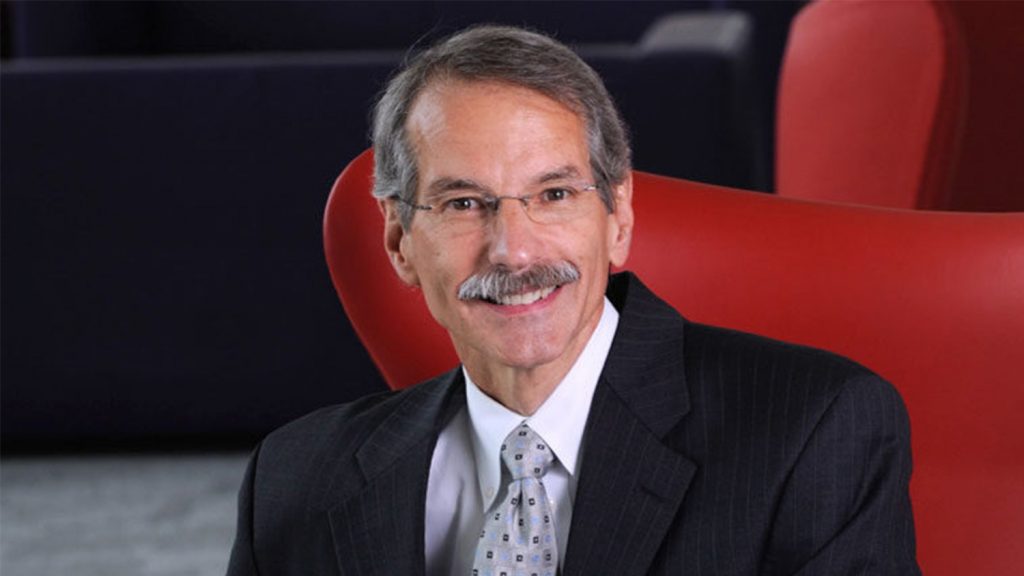Insights and Trends – Keeping Up With the Accounting Profession
A discussion with Scott Showalter, director of the Jenkins Master of Accounting Program and professor of practice in accounting

What are the major changes affecting the accounting profession now?
The big trend headed into the pandemic was analytics and technology. The accounting profession — it doesn’t matter whether it’s audit, tax or even consulting services — are all being significantly impacted. Whether you’re providing services for someone or whether you’re providing the service yourself, it is all about “How can I use analytics better to provide whatever service it was?” That trend will continue clearly in the future as far as you can see.
Another trend that was budding before the pandemic, but I think really accelerated during the pandemic, is other types of reporting beyond financial reporting. I’ve been working around environmental, social and corporate governance (ESG) reporting for over 20 years. I’ve been on an American Institute of Certified Public Accountants (AICPA) taskforce dealing with reporting and assuring sustainability information. I contributed to writing the AICPA guide on how to attest to ESG. But what ESG reporting always lacked was business getting on board. It took something for businesses to get on board, and they actually got on board during the pandemic, so I think ESG reporting is now here to stay.
And the last item, because of the pandemic, is remote working. The pandemic proved it could work. We’ve actually found that we can be productive in this remote environment. A lot of accounting firms have told me that they are significantly reducing their real estate footprint.
What do these trends mean for accountants and accounting?
The big word I’m going to use is opportunity. It means the outlook for accountants is bright. There’s lot of change coming. And for those people who are willing to embrace this change, the future will be good. We need to figure out how analytics and technology can make what we do better. How can we help other people do what they do better?
Our skillset, which is about reporting and attesting to the accuracy of information, applies to all types of information, not just financial information. The skills we have are very broad, and we shouldn’t think about them narrowly. Whether it’s non-GAAP measures for financial results, or with sociability information, or environmental information, or governance information, or whatever, we need to own that space. We should help craft what it is, and we should be the ones to add credibility to that information.
Remote work will change the quest for talent. With a lot of people moving to remote working, if employers are unwilling to support that movement, they’re going to lose the talent war.
What should people entering the field — or thinking about entering the field — take from these changes? What might it mean for the careers of people who are currently students?
First, how we think about work and geography will change. There are certain things that need to be done in certain locations. But now individually, I can work out of Raleigh for that firm. I don’t need to move to Atlanta or New York. Maybe I can have a global experience without moving to Frankfurt, Germany, or whatever it may be. Those opportunities will be available in different ways. People will be able to have experiences they couldn’t otherwise. This movement will also help diversify the accounting profession.
Our view of the accounting profession should also change. For those people that are willing to make that change, it’s going to open up opportunities. There are more pathways available. I still believe that the soft skills are going to be very important – especially professional judgment and critical thinking. If you want to differentiate yourself in this field that is going to be very analytical and technology driven, the soft skills are what will differentiate you.
You see a lot of the surveys done about technology and analytics. They say accounting professionals will be one of the hardest hit. They’re talking about the clerical positions; they’re not talking about a lot of the higher value work that’s being done by the accounting profession. To be able to think critically, to analyze and interpret, is vital. That’s what we’re focusing on with our students here — teaching them what to do with the information, how to do the critical analysis and make a decision, because that is where the value-add is going to be. Another element of analytics is how you present it. That is where communications and relationships come into play. That’s going to be become even more important. I don’t think the critical thinking skills are going to be replaced by technology in the foreseeable future.
The most common thing I hear is, “I’m going into accounting because I love math.” Well, I hope you want to go into accounting because you’re good at critical thinking and you like to communicate.
How is the curriculum at the Poole College of Management changing to address the opportunities accountants will have in the future?
We have evolved the curriculum to include more technology, much more data analytics, and opportunities for critical thinking. We recently received a STEM (science, technology, engineering and math) designation. This designation confirms the significant changes we have been making in the curriculum during the past several years, with more to come.
We have also incorporated nonfinancial reporting in our curriculum. We actually have a Sustainability and Business class. It’s an elective, but it’s filled every semester. Businesses need to operate sustainably, measure the results and then report those results. This is just one example of the very practical applications in our curriculum, so students can experience how a subject works and how it is applied.
One of the comments we often get from recruiters about our students is that they’re some of the best prepared students to start at day one. It doesn’t take them six to nine months to figure out what to do. Once they arrive at the accounting firms, they’re ready to go. We’ve gone the extra mile so students in our program obtain the skills necessary to be successful.


